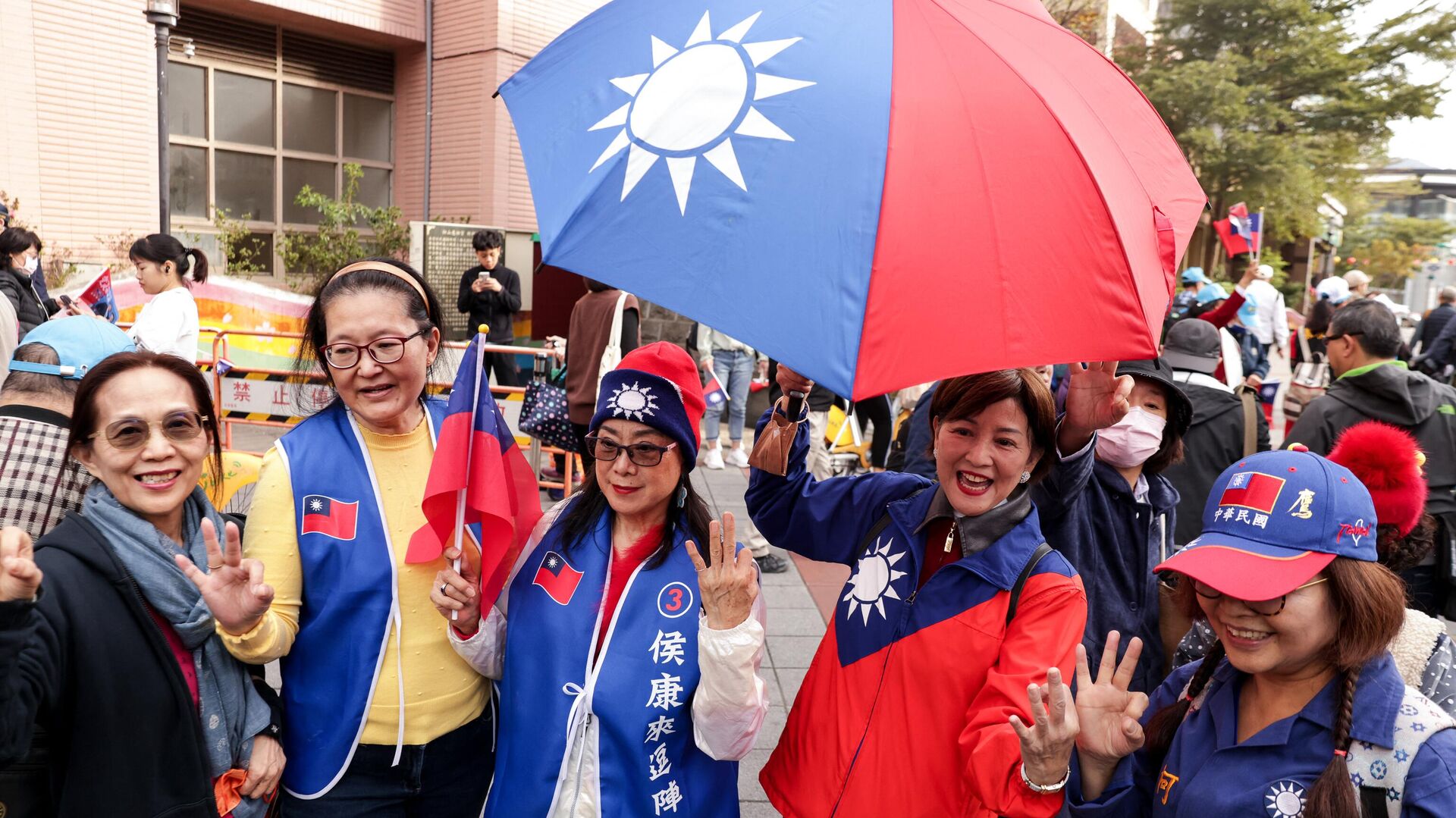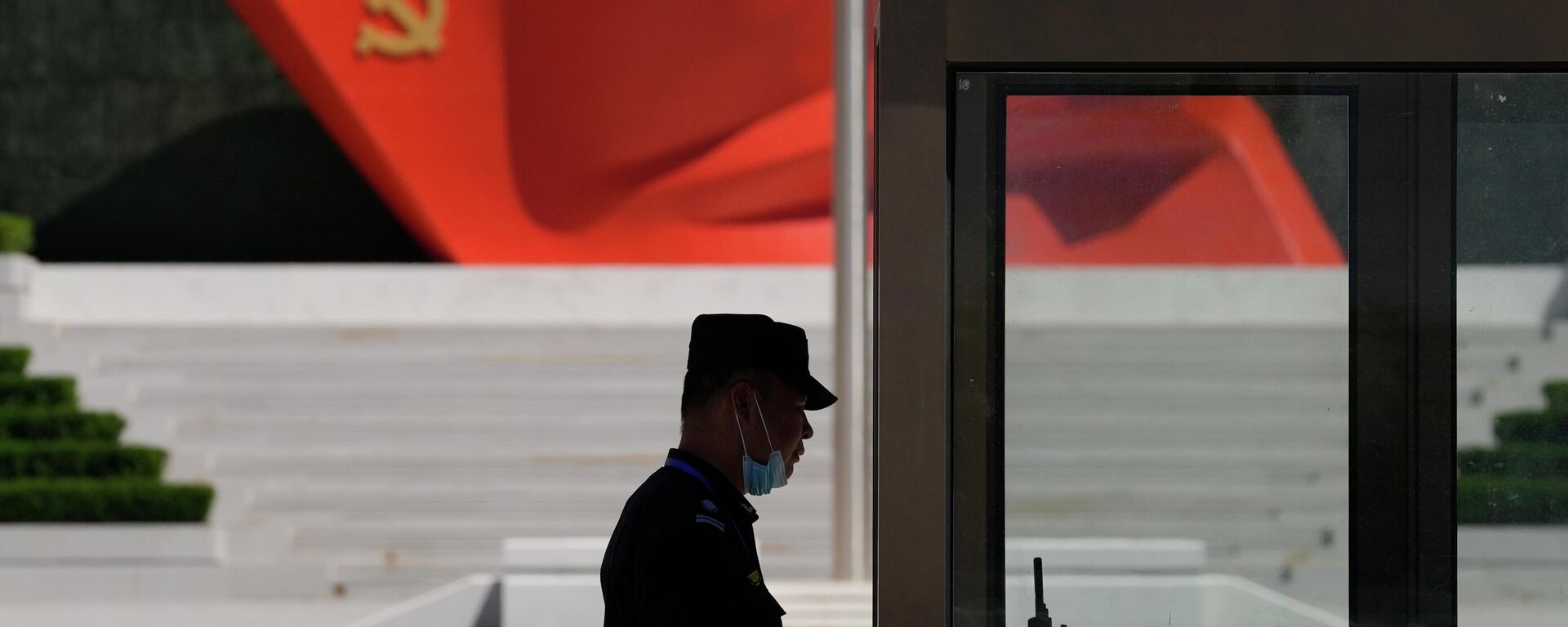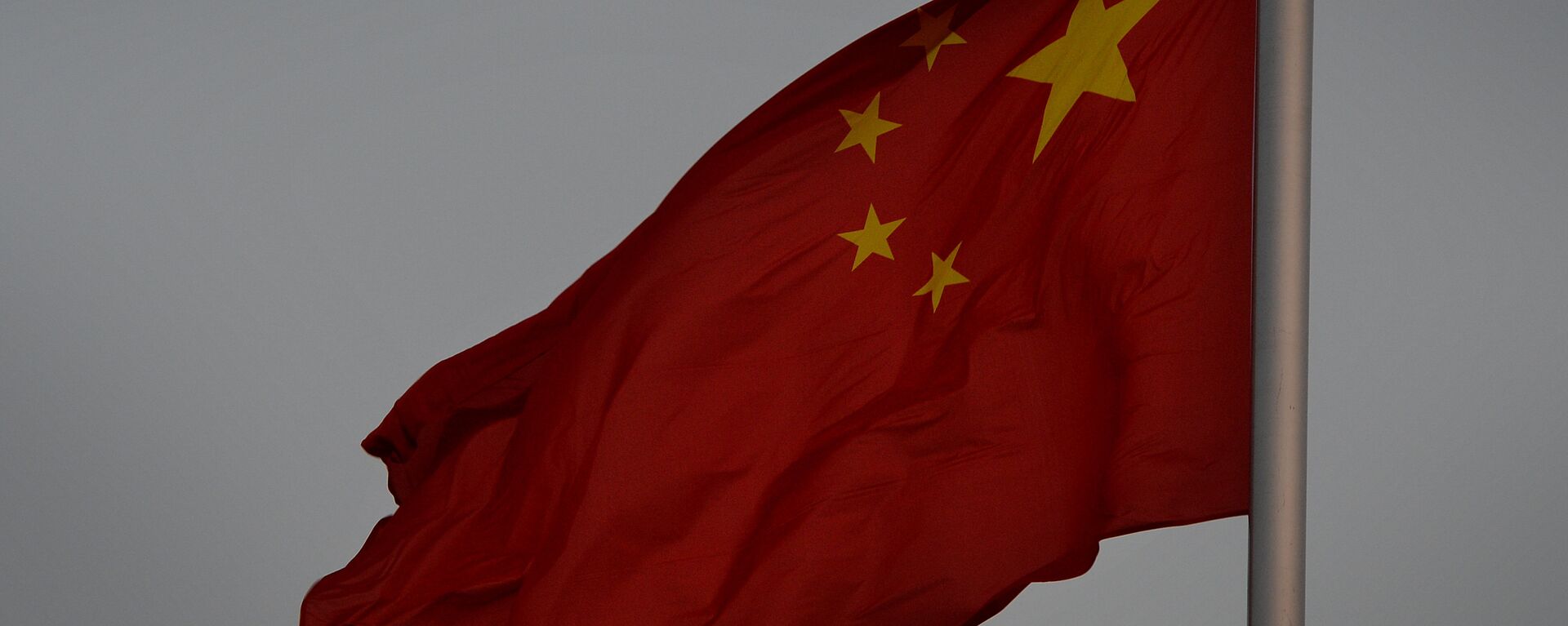https://sputnikglobe.com/20240110/us-meddles-in-taiwan-vote-as-youth-rethinks-allegiance-to-anti-china-party-1116080363.html
US Meddles in Taiwan Vote as Youth Rethinks Allegiance to Anti-China Party
US Meddles in Taiwan Vote as Youth Rethinks Allegiance to Anti-China Party
Sputnik International
Taiwan’s residents will go the polls for general elections on Saturday as President Tsai Ing-wen of the ruling US-backed Democratic Progressive Party prepares to step down as her term comes to a close. The campaign has been accompanied by loud claims of interference from abroad. Sputnik asked a leading China watcher for his take on the close race.
2024-01-10T10:10+0000
2024-01-10T10:10+0000
2024-01-10T10:45+0000
analysis
taiwan
china
beijing
tsai ing-wen
democratic progressive party (dpp)
kuomintang
https://cdn1.img.sputnikglobe.com/img/07e8/01/09/1116080182_0:161:3071:1888_1920x0_80_0_0_5250965b25598f986fc7043809760cd6.jpg
Chinese media are slamming Washington for its quiet attempts to interfere in Taiwan’s upcoming elections after the passage of af US defense bill ramping up arms sales and troop training assistance to the China-claimed island.“It also shows that the US supports the DPP’s current policy line and endorses its so-called political performance,” the scholar said.These meddling fears have been echoed by Chinese officials and by China’s military.“The Taiwan question is purely China’s internal affair and does not allow any foreign interference. We firmly oppose any country engaging in official exchanges or military contacts with Taiwan in any form,” Chinese Defense Ministry spokesman Wu Qian said on December 29. “The United States manipulating the Taiwan question by various means is a very dangerous gamble.”Chinese media and officials’ remarks regarding foreign interference in Taiwan’s political process come amid a slew of reports in Western and pro-DPP Taiwanese media and by US officials claiming Chinese meddling in the upcoming vote. “We urge Beijing to cease its military, diplomatic, and economic pressure against Taiwan, which is fundamentally at odds with the goal of peace and stability,” a State Department spokesman told US state-funded media on Monday.Taiwanese Deputy Leader and DPP election candidate William Lai echoed the US claims Tuesday, accusing Beijing of “interfering” and warning that his victory would force China to reconsider its policy toward the island after he rejects the PRC’s territorial claims.Chinese media preempted the “interference” claims last month, pointing out that as Washington accuses Beijing of meddling, it was Laura Rosenberger, the US’s de factor ambassador to Taiwan, who visited the island to meet with candidates three times in 2023. “What is the purpose behind her visits and meetings? These visits are conducted for ‘on-site inspections’ and misguiding the people,” China Daily contributor Wang Hailiang wrote.Close RaceTaiwan forbids the publication of election polls until after the election during the election campaign's final stretch, with one of the final surveys, taken December 31-January 1, showing the DPP’s Lai in the lead with 38.9 percent against the more China-friendly Nationalist Party (Kuomintang, or KMT) and its candidate Taipei Mayor Hou Yu-ih, who polled at 35.8 percent support. Ko Wen-je of the Taiwan People’s Party – which also favors better relations with Beijing but otherwise shares much of the DPP’s domestic platform, is trailing in third place with 22.4 percent support, according to the survey.The opposition Kuomintang and Taiwan People’s Party made plans to field a single candidate after inking a coalition agreement, but the deal fell through in November in a bitter exchange of acrimony over who would be selected as the candidate for the leadership and deputy leadership roles.The Winner Takes It AllTaiwan’s future, and the future of China-US tensions over the island, are staked “on really who is the winner or the loser” in the upcoming vote, Thomas W. Pauken II, a veteran China and Asia-Pacific affairs observer and author, told Sputnik.Taiwan under the DPP and Tsai Ing-wen’s administration has done a lot to lose diplomatic partners over her term, Pauken recalled, adding that he expects this process to continue if the DPP’s Lai was picked to succeed her.It’s the Economy, StupidEconomics may end up becoming the big hidden driver in Saturday’s vote, according to Pauken, who pointed out that young people gravitating to the DPP and its “‘pro-democracy and anti-Beijing” rhetoric may increasingly see economic issues like job security, real estate and the cost of living crisis as more prescient in determining who they’re going to vote for.As for US policy, Pauken believes the most significant possible form of American interference comes down to its advice to the DPP’s Lai “to not talk so much about independence,” since this could “scare” voters into thinking that the rhetoric could result in “some type of war.”Pauken expressed surprise over Lai’s low-energy approach to the election campaign, chalking it down to complacency.
https://sputnikglobe.com/20240107/china-sanctions-five-us-defense-companies-in-response-to-new-arms-sales-to-taiwan-1116028592.html
https://sputnikglobe.com/20231231/xi-voices-confidence-in-chinas-reunification-with-taiwan-1115917290.html
https://sputnikglobe.com/20231213/china-says-us-must-stop-interfering-in-upcoming-elections-in-taiwan-1115549009.html
https://sputnikglobe.com/20231115/biden-puts-on-diplomatic-smokescreen-for-xi-as-us-tries-to-encircle-china-1114987990.html
https://sputnikglobe.com/20240108/chinas-export-measures-differ-radically-from-us-restrictions---beijing-1116058699.html
taiwan
china
beijing
Sputnik International
feedback@sputniknews.com
+74956456601
MIA „Rosiya Segodnya“
2024
News
en_EN
Sputnik International
feedback@sputniknews.com
+74956456601
MIA „Rosiya Segodnya“
Sputnik International
feedback@sputniknews.com
+74956456601
MIA „Rosiya Segodnya“
who's leading in taiwan's election, who's meddling in taiwan's elections
who's leading in taiwan's election, who's meddling in taiwan's elections
US Meddles in Taiwan Vote as Youth Rethinks Allegiance to Anti-China Party
10:10 GMT 10.01.2024 (Updated: 10:45 GMT 10.01.2024) Taiwan’s residents will go the polls for general elections on Saturday as Tsai Ing-wen of the ruling US-backed Democratic Progressive Party prepares to step down. The campaign is far from being peaceful amid loud claims of interference from abroad. Sputnik asked a leading China watcher for his take on the fateful race.
Chinese media are slamming Washington for its quiet attempts to interfere in Taiwan’s upcoming elections after the passage of af US defense bill ramping up arms sales and troop training assistance to the China-claimed island.
“The passage of this bill, including recent arms sales to Taiwan, shows the so-called ‘US commitment to Taiwan’, which is in fact a continued determination to arm Taiwan, to militarize Taiwan,” Institute of Taiwan Studies associate research fellow Liu Kuangyu
told CGTN on Tuesday, referring to the US National Defense Authorization Act and its promise of fresh support for Taipei.
“It also shows that the US supports the DPP’s current policy line and endorses its so-called political performance,” the scholar said.
These meddling fears have been echoed by Chinese officials and by China’s military.
“Some people in the United States say they hope for peace and stability in the Taiwan Strait, but in fact, they are accelerating the arming of Taiwan, supporting the ‘Taiwan independence’ separatist forces, inciting cross-Strait confrontation, and adding fuel to the fire,” Chinese State Council Taiwan Affairs Office spokesman Chen Binhua stated in a press conference late last month.
“The Taiwan question is purely China’s internal affair and does not allow any foreign interference. We firmly oppose any country engaging in official exchanges or military contacts with Taiwan in any form,” Chinese Defense Ministry spokesman Wu Qian
said on December 29. “The United States manipulating the Taiwan question by various means is a very dangerous gamble.”
Chinese media and officials’ remarks regarding foreign interference in Taiwan’s political process come amid a slew of reports in Western and pro-DPP Taiwanese media and by US officials claiming Chinese meddling in the upcoming vote. “We urge Beijing to cease its military, diplomatic, and economic pressure against Taiwan, which is fundamentally at odds with the goal of peace and stability,” a State Department spokesman told US state-funded media on Monday.
Taiwanese Deputy Leader and DPP election candidate William Lai echoed the US claims Tuesday, accusing Beijing of “interfering” and warning that his victory would force China to reconsider its policy toward the island after he rejects the PRC’s territorial claims.
Chinese media preempted the “interference” claims last month, pointing out that as Washington accuses Beijing of meddling, it was Laura Rosenberger, the US’s de factor ambassador to Taiwan, who visited the island to meet with candidates three times in 2023. “What is the purpose behind her visits and meetings? These visits are conducted for ‘on-site inspections’ and misguiding the people,” China Daily contributor Wang Hailiang
wrote.
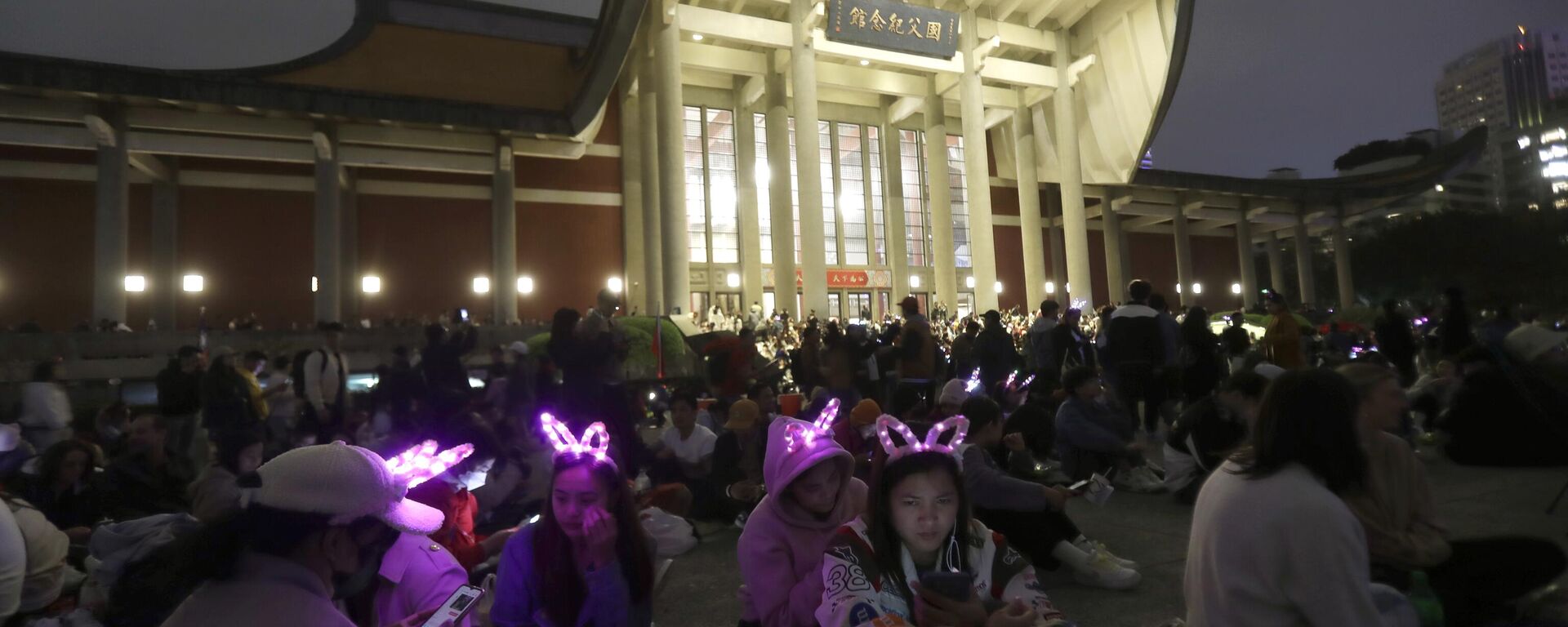
31 December 2023, 16:00 GMT
Taiwan forbids the publication of election polls until after the election during the election campaign's final stretch, with one of the final surveys, taken December 31-January 1,
showing the DPP’s Lai in the lead with
38.9 percent against the more China-friendly Nationalist Party (Kuomintang, or KMT) and its candidate Taipei Mayor Hou Yu-ih, who polled at
35.8 percent support. Ko Wen-je of the Taiwan People’s Party – which also favors better relations with Beijing but otherwise shares much of the DPP’s domestic platform, is trailing in third place with
22.4 percent support, according to the survey.
The opposition Kuomintang and Taiwan People’s Party made plans to field a single candidate after inking a coalition agreement, but the
deal fell through in November in a bitter exchange of acrimony over who would be selected as the candidate for the leadership and deputy leadership roles.
Taiwan’s electoral system does not provide for runoff elections between the two leading candidates if no one manages to win more than 50 percent, meaning the candidate with the most votes is elected, even if it’s less than a majority. That’s potentially good news for the United States and the DPP’s Lai, since together, both opposition parties favoring a rapprochement with Beijing might otherwise garner up to 60 percent of the vote, judging by polling.
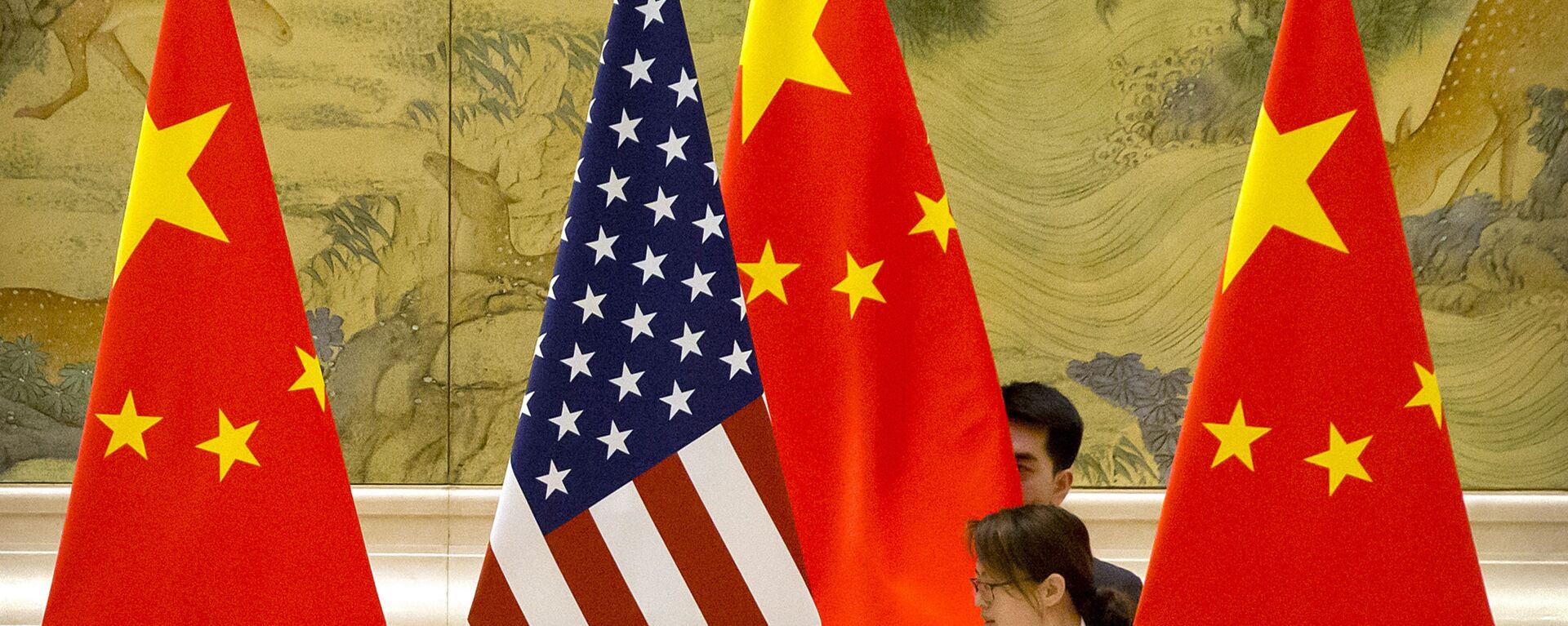
13 December 2023, 05:42 GMT
Taiwan’s future, and the future of China-US tensions over the island, are staked “on really who is the winner or the loser” in the upcoming vote,
Thomas W. Pauken II, a veteran China and Asia-Pacific affairs
observer and
author, told Sputnik.
“If the DPP wins there could be a situation with perhaps more tensions between Taipei and Beijing, as the ruling party…does not look to improve relations,” Pauken explained. “However, if the KMT wins or the TPP wins, we will see better relations between Taipei and Beijing. It comes down to who wins, and that will determine the future of Beijing-Taipei relations.”
Taiwan under the DPP and Tsai Ing-wen’s administration has done a lot to lose diplomatic partners over her term, Pauken recalled, adding that he expects this process to continue if the DPP’s Lai was picked to succeed her.
“But if, say, the KMT wins, I think we will see improved relations with China. And then you’d also see probably improved trade and investment ties also. This could help Taiwan’s economy if KMT gets elected to power,” the observer said.
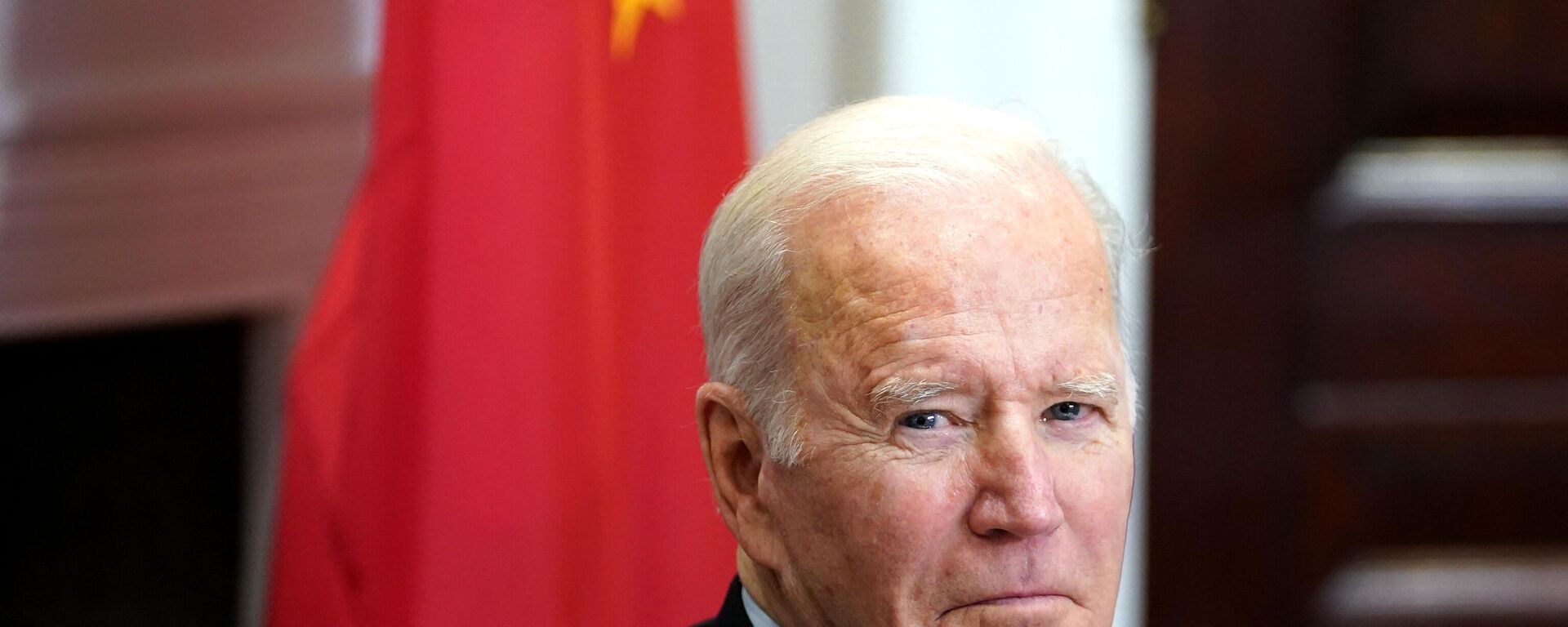
15 November 2023, 19:06 GMT
Economics may end up becoming the big hidden driver in Saturday’s vote, according to Pauken, who pointed out that young people gravitating to the DPP and its “‘pro-democracy and anti-Beijing” rhetoric may increasingly see economic issues like job security, real estate and the cost of living crisis as more prescient in determining who they’re going to vote for.
“If the young voters choose and care more about their economic prospects, they are likely to support the TPP, and that being said, this would take votes away from the DPP because these young voters voted for the DPP last time,” Pauken said, noting that a split in the vote between the two left liberal parties could result in the conservative big tent KMT squeaking through.
As for US policy, Pauken believes the most significant possible form of American interference comes down to its advice to the DPP’s Lai “to not talk so much about independence,” since this could “scare” voters into thinking that the rhetoric could result in “some type of war.”
Pauken expressed surprise over Lai’s low-energy approach to the election campaign, chalking it down to complacency.
“There’s no real energy. He looks like he thinks he’s going to win. He’s very complacent and I don’t see this real drive or energy for him to win the election. He thinks it’s going to be handed to him…The thing is that I guess because the DPP has been in power for so long, they just think that they’re just going to keep winning elections forevermore,” the observer summed up.
